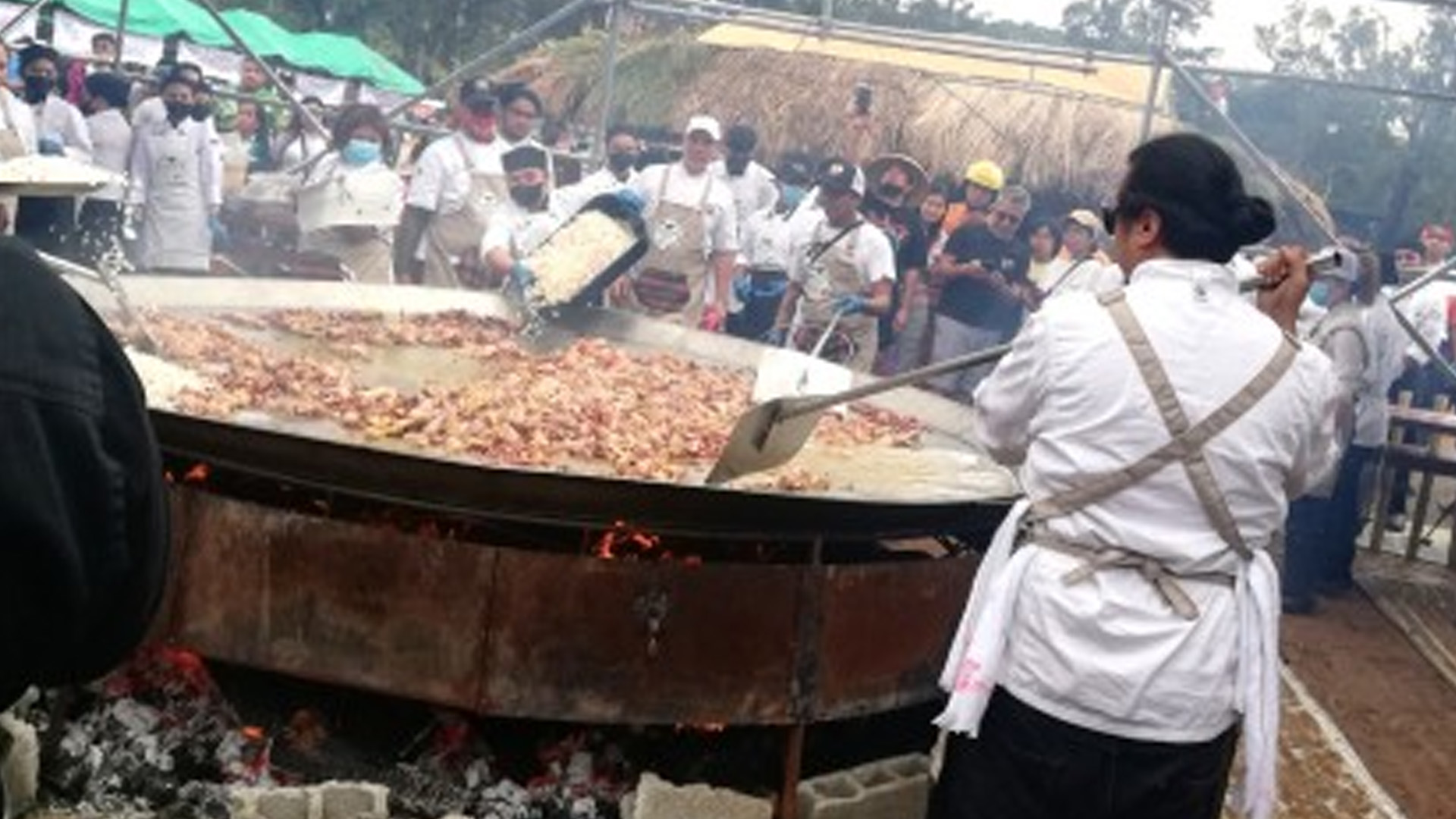More than 10 chefs from prominent hotels and restaurants in Metro Manila and this city put their white aprons on and together labored to cook and serve to at least a thousand people the “Paella ala Cordillera”, a popular Spanish dish using ingredients sourced from the Cordillera.
“Community cooking is something close to our culture. We wanted to showcase popular and widely-used and produced ingredients, which can be made into a world-class dish,” Chef Waya Araos Wijangco of Gypsy Café, the chef coordinator for the project, told the media prior to the cooking of the Paella.
At least 100 kilograms of Chong-ak heirloom rice from Pasil Kalinga was used for the Paella along with 30 kilograms of onions, 40 kilos of red and green bell peppers from Benguet, 40 kilos of native chicken, 10 kilos of peeled garlic, 10 kilos salt, 15 kilos of “kiniing” or smoked meat from Mountain Province, 20 kilograms Abra longganisa (smoked sausages), 10 kilos “pinunnug” or blood sausage from Ifugao, four kilos chicken powder, a kilo of paella spice and 15 liters of olive oil. Several vegetables like broccoli, cauliflower, and carrots were also included in the dish.
A three-meter diameter paella pan borrowed from the Instituto de Cervantes in Metro Manila was used in the outdoor cooking at the Melvin Jones Football Field in Baguio City. The dish was jointly cooked by Chef Waya, Ana Lorenzana de Ocampo, BJ Manuano, Lord Carlo Bayaban, Kit Carpio, Candice Chung, Allen Buhay, Jayjay Sycip, Ivory Yat, Rhea Sycip, assisted by 40 culinary students from the University of Baguio.
”The paella ala Cordillera is a dish that presents ingredients representing the whole Cordillera in one dish,” Joel Pascual of the World Food Expo (WOFEX), who worked with the chefs, said.
Dr. Arlene Sagayo, assistant regional director for research of the Department of Agriculture-Cordillera said the Chong-ak rice of Pasil town in Kalinga was used instead of glutinous rice due to the soft characteristics and aroma of the rice, aside from its red-brown color.
“We have chosen this among the many heirloom rice varieties in the region because of its distinct character,” she said.
Kalinga Governor James Edduba, who served as mayor of Pasil, where the Chong-ak rice is solely produced, said planting, harvesting, and rice pounding involves the culture of the natives in the municipality.
“This is not just rice for us, this is our culture, our lives, and our identity as people of Pasil,” he said.
The Governor expressed joy with the identification and use of the Chong-ak rice for the Paella, citing that this is a way of promoting and introducing its existence.
He said Chong-ak is an export commodity of the town and is recognized by the “International Slow Food Movement” together with the slow food recognition of the town of Pasil.
“We are trying to increase our production but as you know, this is a once-a-year commodity like any other heirloom rice. But we are looking for ways to add to the harvest,” he said.
Pascual said the WOFEX’s strength is the network of food establishments, hotels, restaurants, and caterers who are the end users of the product.
“What we hope to do is to connect the network to the farmers for them to buy dialogue what they need and directly buy from the farmers who will have better income when they produce what is needed by the end users. We want the farmers to know the demand so that they can sell at a good price what they produce,” he added.
He added that if farmers know the market needs, they can adjust what they produce.
Chef Waya also said that around 70 percent of the ingredients used in preparing a meal in general are locally produced, thus, the continued talks with farmers.
“When we talk (with them), we also teach farmers to improve their productivity so that chefs and end users will have more raw materials available,” she said. (PNA)







